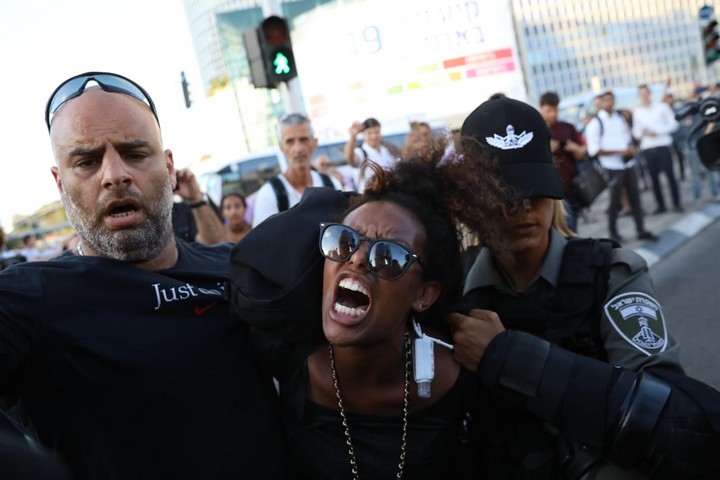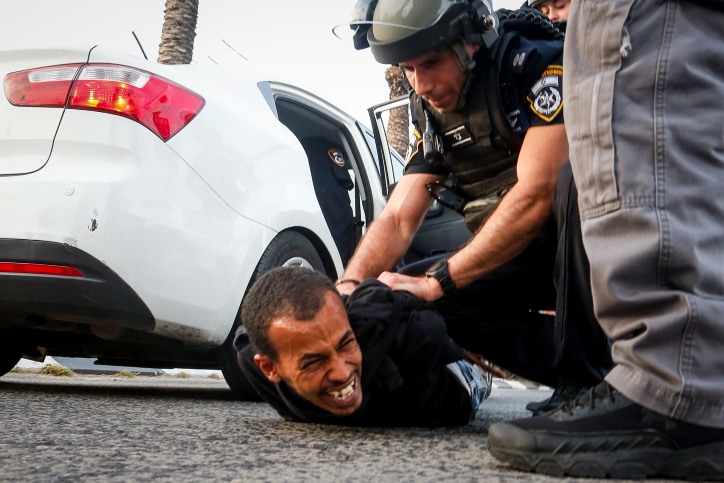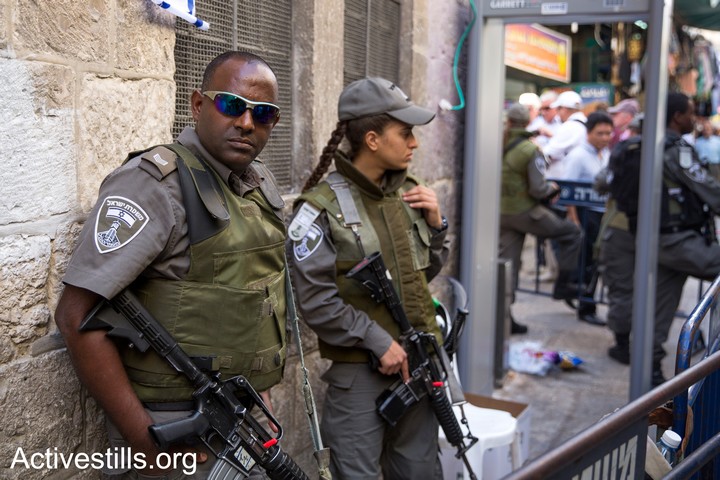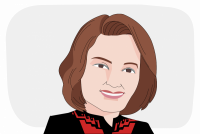As the most oppressed group in Israeli society, Palestinian citizens of Israel have an obligation to stand with the Ethiopian Israelis protesting against racism and police brutality.

The “Black Intifada” erupted just as I was in the middle of a trip to Morocco with my mother. Yet even there, in that quiet kingdom, thousands of kilometers from home, it was impossible to shut out the public conversation happening inside Israeli society.
In the Moroccan city of Essaouira, in the Jewish quarter known as the mellah, migrants from African countries such as Senegal and Congo wandered the streets trying to self us handcrafted goods made of wood and ivory. It was clear to all that they were not locals.
One day, those migrants will be part of Morocco, which already includes citizens of all colors — from the whitest remnants of colonial rule to dark-skinned refugees. What will this place look like after 70 years, I thought to myself? How will Morocco — which prides itself on the harmonious relationship between members of the world’s three major religions, between the indigenous Amazighs and the Arabs who arrived from the Islamic empire, between the different ethnic and cultural groups — contend with thousands of migrant workers and refugees?
I was surprised to discover that some Moroccans had seen the videos of Ethiopian Israeli protesters yelling “Free Palestine” and “Allahu Akbar” during the demonstrations against racism and police brutality, following the police killing of Solomon Tekah in late June. They wanted to know what is taking place in Israel, and had a hard time understanding why Israeli Jews would mistreat Jews from Africa.
“Do Moroccan Jews also mistreat blacks? That’s very strange,” one of the vendors told me. She was especially disappointed to discover that the truth, to a large extent, was yes. Mizrahim, not only those from Morocco, also take an active role in and help fuel discrimination.
There were those in Morocco who viewed the Ethiopian protests as a positive development that would usher in the end of Zionism. The internal divisions between “the Jews of Palestine,” a nickname given to Israelis in Morocco, would lead to the dissolving of the settler government at Israel’s helm, inspiring hope for change for all victims of Israeli policies.
I didn’t want to spoil the party but I had to be honest with them: these protests were going to liberate neither Ethiopians nor Palestinians. A young Ethiopian Israeli man was killed by a police officer, but it is clear that when it comes to Palestinians, it is a different story entirely. The police are far more trigger-happy when it comes to us.
With the ongoing discussions, I managed to ruin the trip for my mother, who wanted so badly to enjoy a nice bonding experience with her daughter. Yet somehow — and this rarely happens — we agreed that Arab citizens of Israel must support the Ethiopian protests. Even if they are Jewish and serve in the army, they are still being exploited and oppressed. We need to find a way to fight together with all victims, my mother said.
“You have no idea what’s happening on social media, Mom,” I told her, explaining that many Arabs are happy to see Israeli Jews fighting among themselves, and that they have a hard time seeing the potential in solidarity between the Palestinian community and Ethiopians. It just doesn’t interest us.

On paper, this line of thinking makes sense. Ethiopians who face systematic racism, police violence and decades of discrimination will wake up following an extreme case of use of force, after which they will spontaneously find common cause with other oppressed groups, including the Palestinians. Only when others admit their mistakes and understand how power and race function in this country will we step up to the plate.
Except it doesn’t work that way.
I believe that the passivity of Israel’s Palestinian citizens, who are looking on from the sidelines, is not only fundamentally wrong, it does nothing to benefit the Palestinian struggle for liberation. This attitude has failed us for the past 70 years. We waited in vain for 60 years for the Mizrahi revolution. We waited in vain for the Jewish left to liberate itself from the chains of Zionism. We were afraid of any attempt at having a conversation or cooperating between groups, recoiling from the very thought of our identity disappearing into the Israeli melting pot.
Yes, I know there are good reasons not to form relationships with groups that oppress and occupy us. I understand this, and still I want to fight for oppressed groups in the society that I wish to live in. As someone who finds herself at the bottom of the national, racial, and gender food chain, I have a role to play in the liberation of others, even if those others have been exploited, willingly or unwillingly, to oppress me and my people. This is the most powerful position I can currently take as a Palestinian woman.

If my mother — the Palestinian refugee who was nicknamed “Tent Girl” as her family searched for a temporary home after their village of Kafr Sabt was destroyed in 1948 — can find it in herself to understand the plight of Ethiopian Israelis, then I believe that most of my fellow Palestinians must also carry with them that inner sense of justice.
We learned what happened with the Mizrahim. Not only did the state and its institutions put down their uprising in the 1970s and suppress their revolution for equality, democracy and social justice, the right then co-opted the Mizrahim for its own political purposes. In the meantime, Mizrahim in the periphery continue to be tracked through a vocational school system and enlist into the army to fight on behalf of the occupiers and the settlers.
At the time, we, the Arabs, did not explain the connection between the occupation and the oppression of other ethnic groups in Israel. Now, we must plan out a strategy for a struggle for real democracy, peace, and justice for all who chose to come here, were born here, and have rights to this land. It is our role as Palestinians to help the weak, dismantle existing power structures, and aid other groups who seek a better life and struggle for liberation.
A version of this article was first published on Local Call. Read it in Hebrew here.

